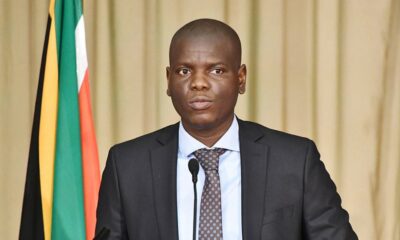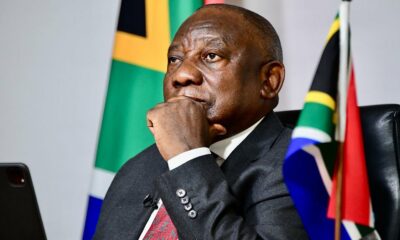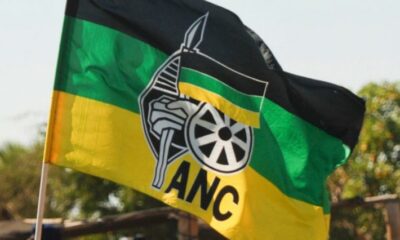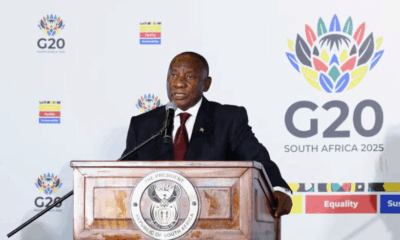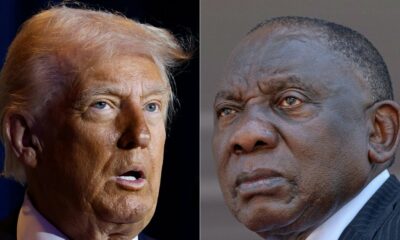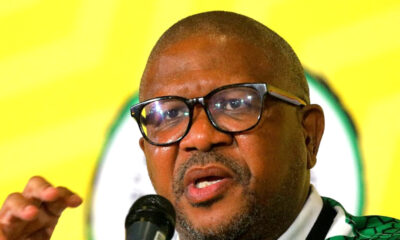News
Tariffs and Tensions: Why US-South Africa Relations Just Hit Rock Bottom
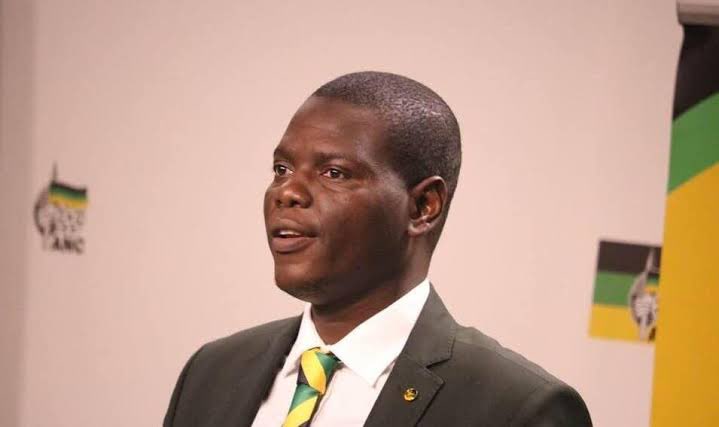
From quiet diplomacy to public fallout, how the US and South Africa found themselves on opposite ends of the table.
For three decades, South Africa and the United States have managed to navigate their disagreements with mutual respect, even when the road got bumpy. But today, the relationship stands at what Foreign Minister Ronald Lamola bluntly calls “a low.”
And the timing couldn’t be worse.
30% Tariffs, 30,000 Jobs at Risk
This Friday, unless a last-minute deal is struck, the US will slap 30% tariffs on certain South African exports—the steepest for any country in sub-Saharan Africa. That’s not just a diplomatic flex; it’s an economic sledgehammer. Officials in Pretoria estimate the move could cost around 30,000 jobs, threatening livelihoods in a nation already battling high unemployment.
Lamola told AFP this week that his government has done “everything possible under the sun” to prevent the tariffs. Yet, despite signing the confidentiality agreements requested by Washington during negotiations, Pretoria is still waiting to hear back. The clock is ticking.
From Trade Friction to Political Fallout
But trade is just one side of the story.
Behind the economic tension lies a deeper, more ideological rift, one that’s been widening for years but has now spilled into the open.
Lamola didn’t mince words when he accused Washington of crossing a line: “In the past, we have not had this situation where another government would want to interfere on a domestic issue like it is now,” he said. And while he didn’t elaborate, the reference points clearly to a growing list of irritants, including South Africa’s international legal challenge against Israel and its internal policies to redress racial inequality.
The MAGA Flashpoint
One of the most public diplomatic blows came earlier this year when the US expelled South Africa’s ambassador, a rare and serious move in diplomatic circles. The trigger? His criticism of the Trump-era “Make America Great Again” movement.
That incident was a clear signal: Washington is not only watching Pretoria’s foreign policy stances but also paying close attention to the political rhetoric coming from South African representatives.
Coalition Fractures at Home
Back home, South Africa’s handling of the tariff crisis has been met with sharp criticism, not just from the opposition, but from members of the coalition government itself. Some have accused President Cyril Ramaphosa and his cabinet of failing diplomatically, leaving the country exposed to harsh economic consequences.
This comes at a time when South Africa is already juggling serious internal challenges, from high youth unemployment to the pressure of coalition politics in the post-election era.
A History of Uneasy Friendship
Historically, South Africa and the US have had a complicated but functional relationship.
While Washington was slow to cut ties with apartheid South Africa, it later became a key ally in trade and development through programs like AGOA (African Growth and Opportunity Act). However, the tone began to sour significantly during Donald Trump’s presidency, and despite a temporary thaw under Joe Biden, tensions have once again intensified.
South Africa’s decision to take Israel to the International Court of Justice over alleged genocide in Gaza has further strained ties, with Washington vocally defending its ally.
Sovereignty at the Forefront
Lamola insists that sovereignty is non-negotiable. “It is important that we maintain our sovereignty and engage with the US at the level of a mutual sovereign state,” he said.
He’s signaling that while trade and diplomacy matter, South Africa will not bow to pressure on how it manages its own affairs, be it land reform, foreign alliances, or legal activism on the global stage.
What Happens Next?
The next few days will be critical. If Washington enforces the tariffs, the damage could ripple far beyond export numbers. It could trigger a more aggressive pivot in South Africa’s global alliances, potentially pushing it further toward BRICS allies like China and Russia, at a time when global power dynamics are rapidly shifting.
Pretoria will likely continue efforts to salvage the trade relationship, but there’s no guarantee of success.
This isn’t just about tariffs or legal disputes. It’s about trust, respect, and whether two nations with very different worldviews can find common ground again.
For now, the bridge between Pretoria and Washington is still standing, but it’s fragile, frayed, and in desperate need of repair.
And while politics plays out on the international stage, it’s ordinary South Africans, especially the 30,000 whose jobs are on the line, who may pay the highest price.
{Source: IOL}
Follow Joburg ETC on Facebook, Twitter , TikTok and Instagram
For more News in Johannesburg, visit joburgetc.com

